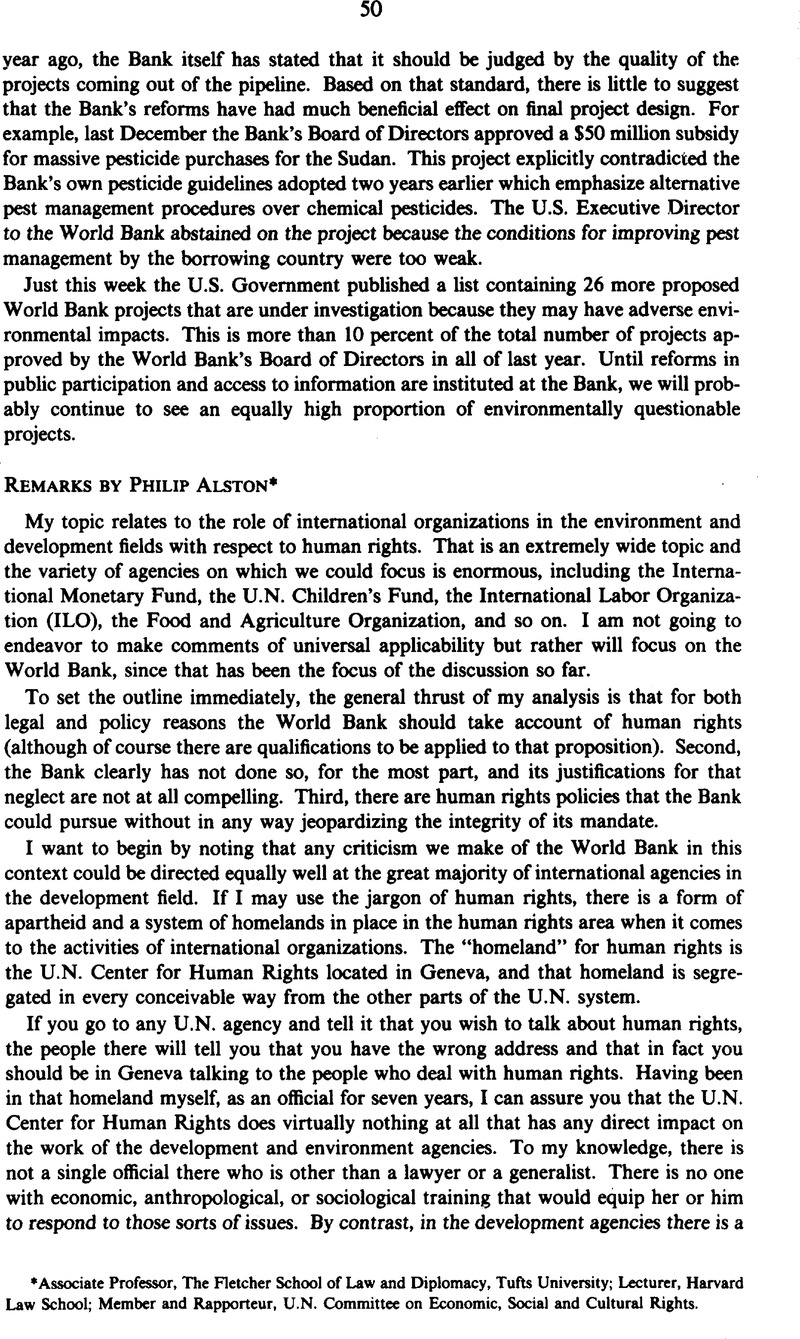No CrossRef data available.
Published online by Cambridge University Press: 28 February 2017

1 D. MITRANY, A WORKING PEACE SYSTEM (1943). In this context see Fatouros, On the Hegemonic Role of International Functional Organization, 23 GERMAN Y.B. INT’L L. 9 (1980).
2 Ascher, New Development Approaches and the Adaptability of International Agencies: The Case of the World Bank, 37 INT’L ORG. 415-39 (1983).
3 OUR COMMON FUTURE: REPORT OF THE WORLD COMMISSION ON ENVIRONMENT AND DEVELOPMENT (1987) Chap. 6.2.1., para. 103.
4 WORLD BANK, TRIBAL PEOPLES AND ECONOMIC DEVELOPMENT: HUMAN ECOLOGIC CONSIDERATIONS (1982).